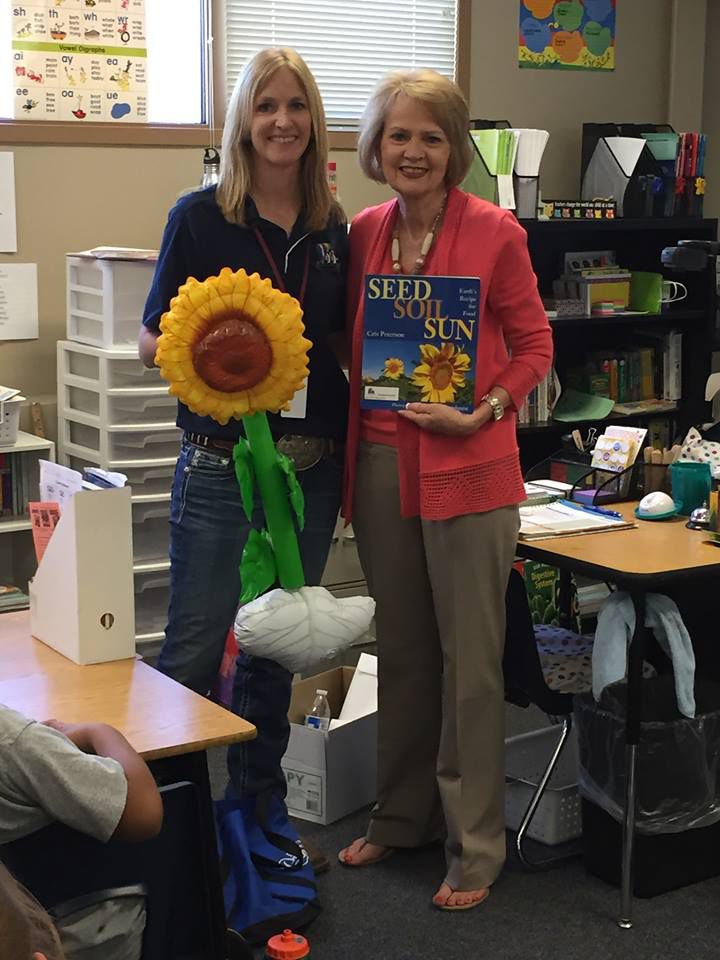Why We Do What We Do for Arizona Agriculture
Published
4/27/2015
Editor’s Note: It’s close to the end of the school year and that means proms,

Arizona Farm Bureau's Katie Aikins with American Farm Bureau's Women's Leadership Committee Chair Sherry Saylor during this spring's Ag Literacy Week. By the time this Ag
By Katie Aikins, Arizona Farm Bureau: I was asked to speak on the importance of Agriculture Education programs in schools tonight. Just as a point of reference I’d like to ask, so I know my audience: students, raise your hands if you live or work on a farm or ranch. Parents, raise your hand if you live or work on a farm or ranch. Grandparents? This room fits the statistic that today people are three to four generations removed from the farm and ranch. They lack the first-hand knowledge and experience about where their food is coming from and how it is being produced. They are getting their information from Google, Dr.
My job gives me an interesting perspective on things. You see, I know that only 2% of our population is involved in production agriculture, yet 100% eat food and need clothes (thank goodness!) I get to see production agriculture on a regular basis. I also get to see the misinformation and disconnect between the consumer and what agriculture is today. I love Ag Education programs because they help bridge that gap. Though all the students may not go into production agriculture (is anyone in this room going to be a farmer or rancher?) we still need individuals who are educated in agriculture and can fill the thousands of other industry jobs that get the food from the farm to the plate. Who in here will be working education or an agricultural career when they graduate?
We in agriculture have to have a generation of students who can bridge the knowledge gap about what agriculture is and what it is perceived to be; a generation of students that can be innovative and help feed the 9-billion people that are projected to be on this planet by the year 2050. And it is my belief that these individuals are ALL products of AG education in schools. So, you ask me about the importance of AG education programs in schools? I would say they are pretty important if you want to continue to eat.